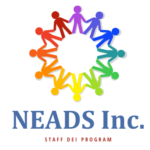Ableism
Refers to discrimination and social prejudice against people with disabilities or who are perceived to have disabilities. Ableism characterizes persons as defined by their disabilities and as inferior to the non-disabled.
Appropriate Terms to Use about Disabilities
While there are varying preferences regarding disability terminology, there are some terms which should never be used as they are not respectful of disabled people. The below is not an exhaustive list, but is meant to provide some practical guidance and explanation for terms no longer in use and the recommended alternative.
Read More13 Productive Ways To Support Neurodivergent Employees
Not everyone thinks the same way. Rather than aim for conformity of mind among their staff, business leaders should embrace more diverse approaches and thought processes. By offering unique perspectives and innovative solutions, neurodivergent employees can become key players at their companies.
Read MoreHow to Build and Support Neurodiversity in the Workplace
Imagine this scene: You’re interviewing a potential candidate for a role as a developer with your company. The candidate seems to have the skills you need but also displays a few social eccentricities – perhaps he has a tick, or rocks back and forth in his seat, or won’t make eye contact.
For decades, potential hires like this have been rejected from the candidate pool. “Poor culture fit” has typically been the rationale.
Read MoreShould You Bend Over To Talk To Someone In A Wheelchair?
Have you ever wondered how to best have a conversation with someone using a wheelchair? How can I be more inclusive in conversations?
Read MoreTen ways to boost your communication skills with someone who is deaf
Tips and techniques for better communication with people who are deaf.
Read MoreTips for Communicating with People with TBI and PTSD
Not everyone has experience communicating with people with disabilities. However, it should not be intimidating. Appropriate etiquette when interacting with people with disabilities is based primarily on respect and courtesy.
Read MoreThe Dos & Don’ts When Interacting With Autistic Children
Autistic children are as individual as any children, so there aren’t set rules on how to interact with them. But there are some general things you can consider to increase the likelihood of positive experiences. This involves learning what not to do with an autistic child and what can help to promote healthy interactions. Like…
Read More6 Tips for Interacting Positively with Children on the Autism Spectrum
Six tips for interacting positively with children with autism spectrum disorder: Be patient. Children with autism may need more time to process information. Be kind and flexible. They’re often less able to adapt to new situations. Use gestures or other ways to communicate besides words. Learn how to show interest and affection in ways they…
Read More